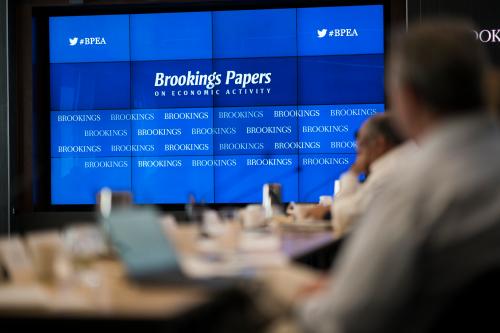This paper is part of the Spring 2018 edition of the Brookings Papers on Economic Activity, the leading conference series and journal in economics for timely, cutting-edge research about real-world policy issues. Research findings are presented in a clear and accessible style to maximize their impact on economic understanding and policymaking. The editors are Brookings Nonresident Senior Fellow and Northwestern University Economics Professor Janice Eberly and James Stock, Brookings Nonresident Senior Fellow and Harvard University economics professor. Read summaries of all six papers from the journal here.
Abstract
America’s regional disparities are large and regional convergence has declined if not disappeared. This wildly uneven economic landscape calls for a new look at spatially targeted policies. There are three plausible justifications for place-based policies–agglomeration economies, spatial equity and larger marginal returns to targeting social distress in high distress areas. The second justification is stronger than the first and the third justification is stronger than the second. The enormous social costs of non-employment suggests that fighting long-term joblessness is more important than fighting income inequality. Stronger tools, such as spatially targeted employment credits, may be needed in West Virginia than in San Francisco.
Citations
Austin, Benjamin, Edward Glaeser, and Lawrence Summers. 2018. “Saving the Heartland: Place-Based Policies in 21st Century America.” Brookings Papers on Economic Activity, Spring, 151-255.
Conflict of interest disclosure
The authors received financial support for this work from the Smith Richardson Foundation. With the exception of the aforementioned, the authors did not receive financial support from any firm or person for this paper or from any firm or person with a financial or political interest in this paper. With the exception of the aforementioned, they are currently not officers, directors, or board members of any organization with an interest in this paper. No outside party had the right to review this paper before circulation.








